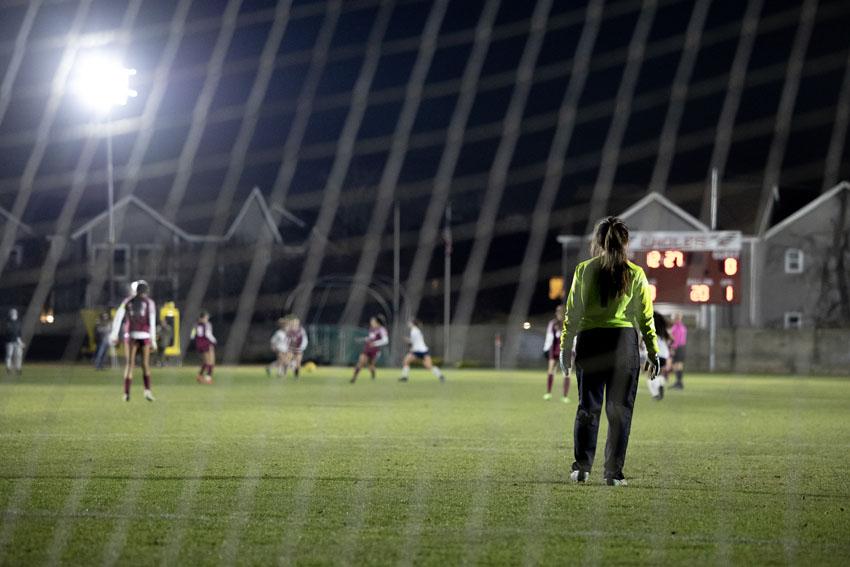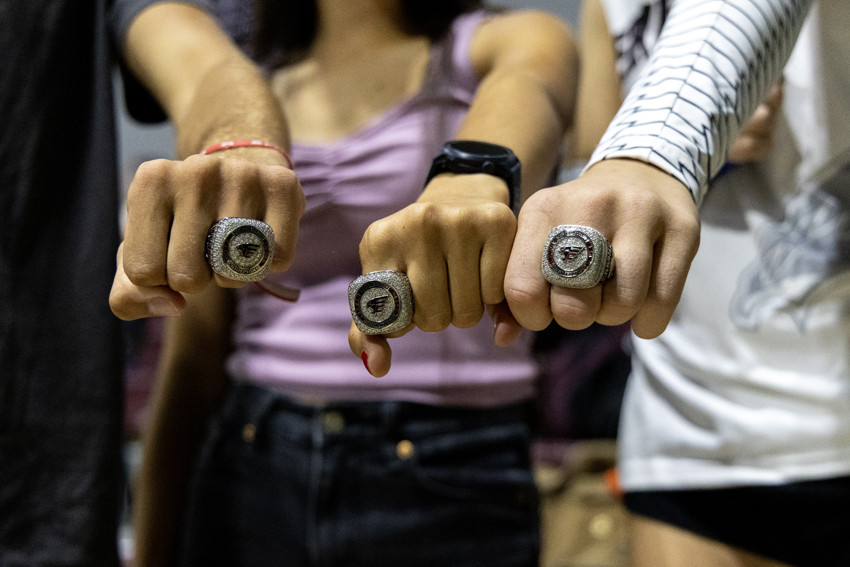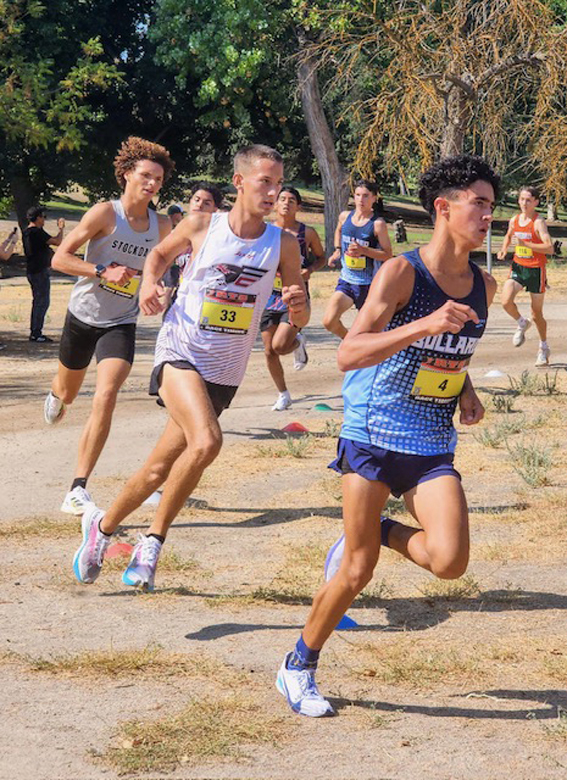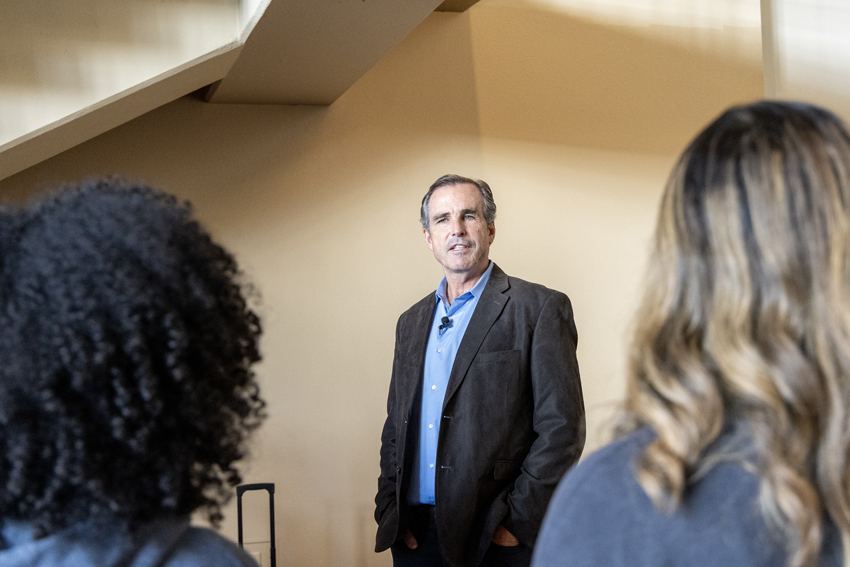Athletes must deal with many stressors in order to perform their best
According to the Oxford Reference, mental toughness is a “quality of mind or intellect characterized by… a refusal to be intimidated, a determination to finish… when things are going badly, and an ability to control emotions and remain highly focused when under the pressure of intense competition.”

For some, unbreathable and constricting stress comes as a package deal with high school and even collegiate athletics, and breeds into a breach of the athlete’s mental health. A combined 15-21% of high school and college level student athletes are fighting an invisible war against depression, while sacrificing themselves for greater athletic performance.
A self-critical mindset is a byproduct of external environments, like parental figures, teachers, fellow peers and even interactions with siblings. This analytical tendency is an obstructive assessment that sets unrealistic expectations to be met.
When these fantasy goals aren’t met, the mind begins to think the human is at fault rather than altering the expectation, which leads to the belief that their life has no weight to it and to the development of mental health distress in the forms of depression, anxiety and body image issues.
Life coach and former college athlete, Dave Obwald, explains his view of self criticism.
“I think we are hardwired for this,” Obwald said. “It is so helpful to know that every human struggles with this. It should give us compassion to know everyone is fighting a battle. Every person universally has the judge who judges self, others, and our circumstances. With that each person also has a unique cluster of other saboteurs that come with the judge to trip us up and hijack our minds.”
The Positive Intelligence Institution, founded by Shirzard Chamine, specializes in neuroscience, cognitive behavioral psychology, performance science and positive psychology to attack the root of self-sabotage, rather than the symptoms it causes.
Based on the institution’s research, The Whitepapers, the regions of the brain have two divisions – the survive region (Saboteurs) and the thrive region (Sage).
The mind’s Saboteurs are the inner dialogue, which deteriorate mental toughness. Saboteurs located in the brainstem, limbic system and sections of the left brain contribute to the production of stress, anxiety and other negative emotions (self-doubt, guilt, frustration). Despite its role in the production of pessimistic attitudes, Saboteurs do have some benefits by being an alert system for issues and damages. According to University of Nevada’s psychology professor Russell Hurlburt, only about 30-50% of people have Saboteurs.
Sage is made up of the middle prefrontal cortex also dubbed as the “empathy circuitry” and sections of the right brain. Sage produces empathy, compassion, gratitude, curiosity and calm clear-headed laser-focused action, countering the negatives of Saboteurs.
Obwald gives applicable tips for those who struggle with Sabateours and expands further on our mind’s battle against the negative responses generated by the voice in our heads.
“I practice focusing each day on what is true about God, myself and the situation. We can do this through written affirmations, memorization of the truths from scripture and things I want to remember as true when the pressure is on,” Obwald said. “We call this the Sage mind vs. the Hijacked mind. Think of how a Jedi is in battle in Star Wars, there is chaos all around and they are at peace.”

The Positive Intelligence Institution has organized a method to weaken Saboteurs, while strengthening the Self-Command and the Sage. Positive Intelligence Reps are exercises that divert the attention to the physical environment and off the obstructive thoughts and feelings produced by Saboteaurs in a 10-second duration. These exercises can range from listening to a specific sound to fiddling with something near you.
Varsity girls’ soccer player, Serenity Cortez ‘24, shares what she does for her Positivity Quotient reps during a high-intense game.
“I squeeze my hand three times,” Cortez said. “Then I wiggle my fingers to refocus my mind on my surroundings and the situation I’m about face. To drown out the negative thoughts I whisper to myself ‘You can do it for them [her deceased loved ones]’ to remind myself that my biggest enemy is my own mind if I let it be.”
Mental toughness can be found in non-competitive environments, like at school or at home. Having a strong mental mindset can be beneficial to students in situations of a difficult test or presenting before fellow peers.
To learn more about your personal saboteurs and how to strengthen your mental toughness visit 9 Ways We Self Sabotage.
To read more from The Feather, go to Girls soccer ’22-23 season wrap-up or GED: An alternative to traditional education.










